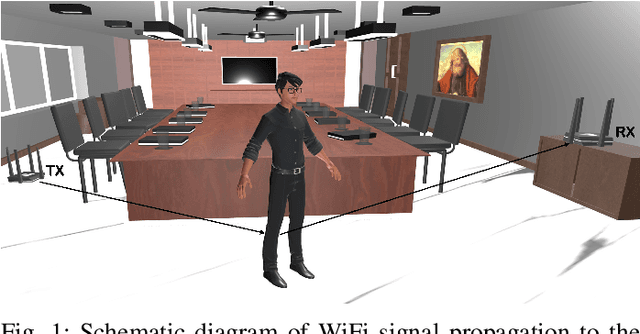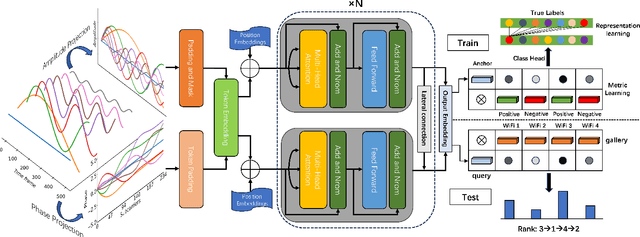Time-Frequency Analysis of Variable-Length WiFi CSI Signals for Person Re-Identification
Paper and Code
Jul 12, 2024



Person re-identification (ReID), as a crucial technology in the field of security, plays an important role in security detection and people counting. Current security and monitoring systems largely rely on visual information, which may infringe on personal privacy and be susceptible to interference from pedestrian appearances and clothing in certain scenarios. Meanwhile, the widespread use of routers offers new possibilities for ReID. This letter introduces a method using WiFi Channel State Information (CSI), leveraging the multipath propagation characteristics of WiFi signals as a basis for distinguishing different pedestrian features. We propose a two-stream network structure capable of processing variable-length data, which analyzes the amplitude in the time domain and the phase in the frequency domain of WiFi signals, fuses time-frequency information through continuous lateral connections, and employs advanced objective functions for representation and metric learning. Tested on a dataset collected in the real world, our method achieves 93.68% mAP and 98.13% Rank-1.
 Add to Chrome
Add to Chrome Add to Firefox
Add to Firefox Add to Edge
Add to Edge